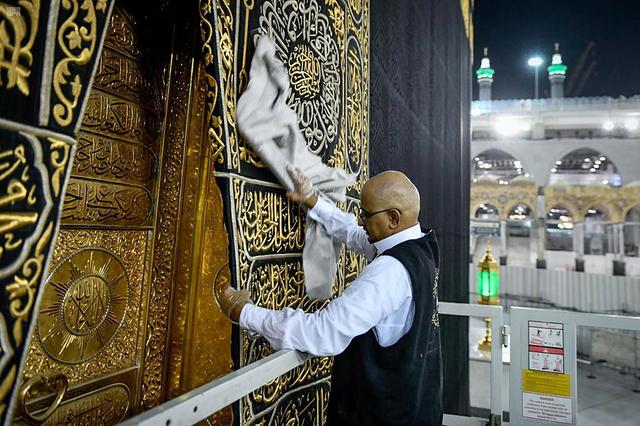The beginning of the holy month of Ramadan is a good opportunity to openly discuss a topic that we have touched on several times recently, and which has sometimes led to misunderstandings among some of our readers. Namely, how the challenge of the coronavirus has revealed questions about the nature of faith and its place in modern society. Some of our readers, including Muslims, were unhappy with our criticism of certain Islamic missionary movements that continue to hold mass meetings during the pandemic, as well as Russian Orthodox priests who urge their parishioners to attend church during this time, to trust in God’s mercy, and not to fear death in church. Some saw this as almost atheism, unbelief, and a lack of trust in Allah.
Now the month has come when healthy Muslims, including us, will, God willing, abstain from food and drink for 15-20 hours a day, as prescribed by our Lord, subjecting their bodies to stress and restraining their passions and desires. But what is the difference between this worship and what we have criticized, and is it not hypocrisy on our part if we demand that Orthodox believers abstain from their worship in the form of communion and standing in churches?
No, and here’s why. The observance of the fast itself poses no danger to those around us, and we were not opposed to Orthodox believers observing their fast preceding their holiday. The only exception might be situations where people are in the midst of the sick or potentially sick and need to maintain their strength in order not to get sick. However, just before Ramadan, fatwas were issued stating that medical personnel should not fast in such situations, as we wrote.
It is a different matter altogether when mass gatherings violate the basic anti-epidemic rule of social distancing, and it is precisely for this disregard that we criticize religious leaders and their followers for endangering the lives of others. Why do we, as religious people, do this? Because we believe that religious people, especially today when religion is attacked by atheists and secularists as something backward, need to show society an example of consciousness that refutes such perceptions, not reinforce them.
Frankly, it is easier for us as Muslims to do this. Islam is not a religion of the temple, because for us the whole earth is a mosque, a place of worship. Islam is not a religion of priesthood, because we do not require the presence of specially ordained people to perform obligatory acts of worship. And Islam is not a religion of ritual sacraments, and our connection to God does not depend on eating from the same spoon or drinking from the same cup.
Muslims know that God is with them wherever they are, He hears their prayers wherever they are offered, and He accepts their sincere worship, even if it is performed in limited forms-not only in this situation, but in various situations.
Yes, Islam is a religion of the congregation, a community that is necessary for the performance of collective acts of worship, and without which some forms of individual worship become difficult. Yes, in Islam it is preferable to perform prayers in congregation and in mosques, and it is obligatory for men to attend Friday prayers, while it is highly desirable for all Muslims to attend two holiday prayers.
But all this has conditions, and all this is not an end in itself, but a means to achieve the end – to please Allah and achieve other religious goals. Therefore, Islamic jurisprudence, based on verses and hadiths, has formulated rules that exempt Muslims from such additional – collective, public – events, and in some cases even prohibit them, as is currently the case.
If you pray at home in order not only not to be infected yourself but also not to infect others, because living among other people means that you cannot be sick without infecting others, then this manifestation is not weakness but strength in your faith and its awareness. Therefore, scholars and leaders of many Muslim countries have decided to close mosques to the public during this period.
This does not contradict the Islamic reliance on Allah; rather, it is fully consistent with it, because the correct Islamic perspective combines reliance with the creation of means, while blind reliance without the creation of means and ignoring the laws and arguments of reason is completely contradictory to the Islamic approach to faith.
Nevertheless, we must note that representatives of other religions, especially not only representatives of Protestant denominations of Christianity, but also many Orthodox believers, show an example of social responsibility in this time. They provide arguments from the history and dogma of their religion that in such situations it is wrong for Orthodox believers to go to church and they should satisfy their religious needs in other ways.
Therefore, it can be said that there is a healthy competition among different religious communities in this area, which consists of a struggle for their image and therefore for their congregation, i.e. how they are perceived both by others and by their own members.
Therefore, especially in this month of worship, we call the faithful to worship sincerely and consciously. Paradoxical as it may sound, it is precisely the social nature of Islam, i.e. the fact that our religion attaches great importance to the regulation of social life, that requires Muslims today not to show off their “religiosity” and “courage”, which upon closer examination turn out to be “folly and recklessness”, but to worship in safe places and in the presence of the One who sees right intentions and righteous deeds.

